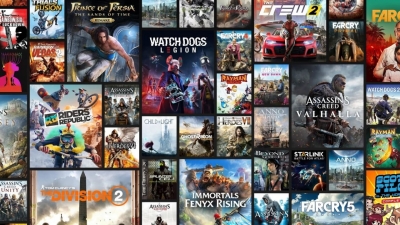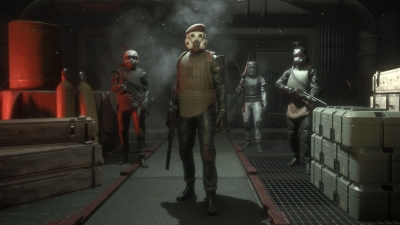Gamer friends are real. If you’ve not met them in person, that doesn’t mean these relationships are not meaningful. Still, it’s vital to be aware that some people posing as gamer friends aren’t friends at all. They are criminals looking for potential victims for fraud and exploitation.
Gaming can facilitate a genuine bond over more than a shared interest but a passion. Working together for a shared goal is evidently a great way to bond. Check out this post to learn how to have fun with friends online while balancing essential security and privacy needs.
Real Friends Can Be Virtual
According to a Virgin Media survey, virtual relationships were sometimes considered as valuable as in-person social interactions, if not more so. About three-quarters of people surveyed said that they considered online-only friends to be “real friends.”
The survey also uncovered that the typical gamer has more friends online than friends they have met in person. And most of these respondents found it easier to talk to online gamer friends than talking face-to-face. Talking to a non-judgmental gamer can aid honest self-expression in times of crisis.
During months of COVID-19 confinement, most gamers in the Virgin Media survey said that they stayed in touch with their friends via games. Four out of ten considered a good gaming session just as good as socializing in person. Gaming friends provided real support and companionship when many others suffered feelings of depression and isolation.
Vast swathes of the worldwide population learned how to connect online. This was not so much of a learning curve, nor a necessity, for many gamers. Gamers have been making connections and building real relationships via online messaging and in-game interaction for years.
With more people online than ever, however, and the proliferation of interactive, online games with chat features, the risk from online predators has also increased. We need to protect ourselves and our children from exposure to such individuals so we can continue to enjoy gaming communities online.
The Risks of Making Virtual Friends
Creating an online identity is an opportunity for many to attempt to mask their true identity. For some, this might be an element of roleplay, escapism, or wanting to enjoy gaming covertly. For others, however, it can be more sinister.
Mary Anne Franks, president of the Cyber Civil Rights Initiative and a professor at the University of Miami School of Law, described video games and online chats as “hunting grounds” for sexual predators. Most teenage boys in the US play video games. And most teenage girls, too. It stands to reason that the gaming community attracts criminals who seek to make virtual connections with children.
These bad actors pose as children or teens and gain the trust of children over time. This - the grooming period - might last for months without the child being aware that they are really chatting to an adult.
A predator might share sad stories to elicit sympathy from the child. They may offer gifts, sometimes in the form of some in-game currency. Then they often attempt to desensitize the child to sexual language and imagery.
Later, there may be an attempt to elicit sexually explicit images or videos of the child. Once received or recorded, sexual predators use these to blackmail the kid for yet more imagery or money.
These are not isolated incidents. The victims of such abuse can number in the hundreds or even thousands for some of these criminals.
Protect Yourself Online
To keep yourself safe from harm while gaming and making online friends, be extremely careful with what you share. Do not share personally identifying information, such as your full name or your physical address.
No matter how much fun you’re having online and how authentic your gamer friend seems, it’s critical to remember that anyone can create a fake online profile and pose as someone they are not. Sometimes, this is for fraud or sexual predation. We need to behave accordingly.
If the other party gives you information about themselves, take the opportunity to check this out on Nuwber. With details such as name, address, and phone number, it may help you verify the identity of a gamer friend and that they are, at least, who they say they are.
If you already have gamer friends, you have some details on them, perhaps from messages in-game or profiles on Facebook and other platforms. Use Nuwber to check them out. It can put your mind at rest to know whether your gamer friends are likely really friends or potential foes.
How to Find Gamer Friends Safely
There are lots of ways for people to connect with other gamers. Whether you want to connect with people in person before connecting online or you want to learn how to interact with people during gameplay, there will be an approach to suit you.
You can meet in-person gamers at organized meetups or gaming conventions. Meeting in person at a public event can demonstrate your shared interest and reassure you of the age and sex of the person you will eventually play with online. Meetups and conventions are also excellent ways to get the latest information on gaming and find out what’s hot and what people are playing.
Outside of gaming and real-world scenarios, you might choose to meet people in dedicated social media groups. Facebook and Reddit have dedicated pages for gamers where you can see what others are playing and when. Apps like GameTree, which even has a dating functionality, can also help you find and connect with like-minded gamers. You can use these to make connections to share tips and play together, but be particularly cautious of anyone who meets you in-game and tries to direct you to a private chat platform as this is a signature of a sexual predator.
And then you can also meet people in-game. Make a note of the usernames of people you have enjoyed playing with and reach out to them. Typically, games have facilities for adding friends, seeing their status and chatting with them within the game. Services like Steam, for example, facilitate socializing while gaming.
Be friendly and ask people to play again when they pop up on your screen. But be prepared for rejection. People can be blunter online than in person or they may not reply at all.
If you are making friends or planning to make friends online, proceed with caution while confirming that the person and your connection with them are authentic. For safety, minors should never meet in-person someone they’ve only met in a game before.
As an adult, meeting someone you only know online requires precautions. Make sure to tell someone what you are doing and when, meet in a public place, avoid going alone, and avoid going back to the gamer’s place. As with other online meetups, if anything makes you feel uncomfortable, exercise your right to end the meeting.
So, Is Your Gamer Friend a Friend or Foe?
According to Merriam-Webster, a friend can be defined as someone you are attached to by esteem or affection; a non-hostile person who supports you.
We should take online relationships seriously and give them the respect and attention they deserve. Because they take place online, however, it’s also necessary to take prioritize safety and security. Exercise caution with your gamer friend and attempt to confirm that they are really who they claim to be.






